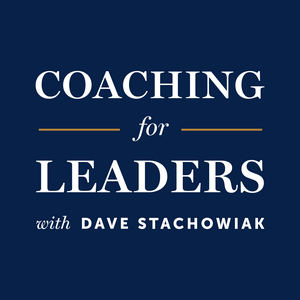728: Lower Your Risk of Being Hacked, with Qasim Ijaz
Qasim Ijaz
Qasim Ijaz is the director of cybersecurity at a leading healthcare organization, overseeing detection, incident response, vulnerability management, purple teaming, and cybersecurity engineering. With a strong background in offensive security and risk management, he has helped organizations strengthen their defenses against evolving threats. He is also a dedicated educator, mentoring professionals and sharing his expertise at conferences such as BSides and Black Hat.
You don’t need to go far in the news these days to find out that another organization was hacked. Data breeches are a nightmare scenario for both leaders and the people they support. In this episode, Qasim and I explore what your team and you can do to be a bit more prepared.
Key Points
Use multi-factor authentication, passphrases, and a password manager.
Freeze your personal credit reports. Do this for free directly with Experian, Equifax, and TransUnion.
Leaders in bigger roles (executives, CEOs, board members) are larger targets for hackers due to their access and also their ability to occasionally side-step organizational guidelines.
It’s the non-technical pieces of a cyber response that organizations are least prepared for.
Conduct incident response and disaster recovery tabletop exercises to uncover vulnerabilities before an attack.
Regardless of organizational policy, employees will use AI. The best prevention assumes the inevitability of human behavior and works with it to improve systems.
Resources Mentioned
Recommended password managers: 1Password, Apple password app, Proton Pass
Critical Security Controls by the Center for Internet Security
Resources for Small and Medium Businesses by the Cybersecurity & Infrastructure Security Agency
2024 Data Breach Investigations Report by Verizon Business
Related Episodes
Dumb Things Smart People Do With Money, with Jill Schlesinger (episode 396)
Where to Start When Inheriting a Team in Crisis, with Lynn Perry Wooten (episode 603)
How to Use AI to Think Better, with José Antonio Bowen (episode 689)
Discover More
Activate your free membership for full access to the entire library of interviews since 2011, searchable by topic. To accelerate your learning, uncover more inside Coaching for Leaders Plus.

